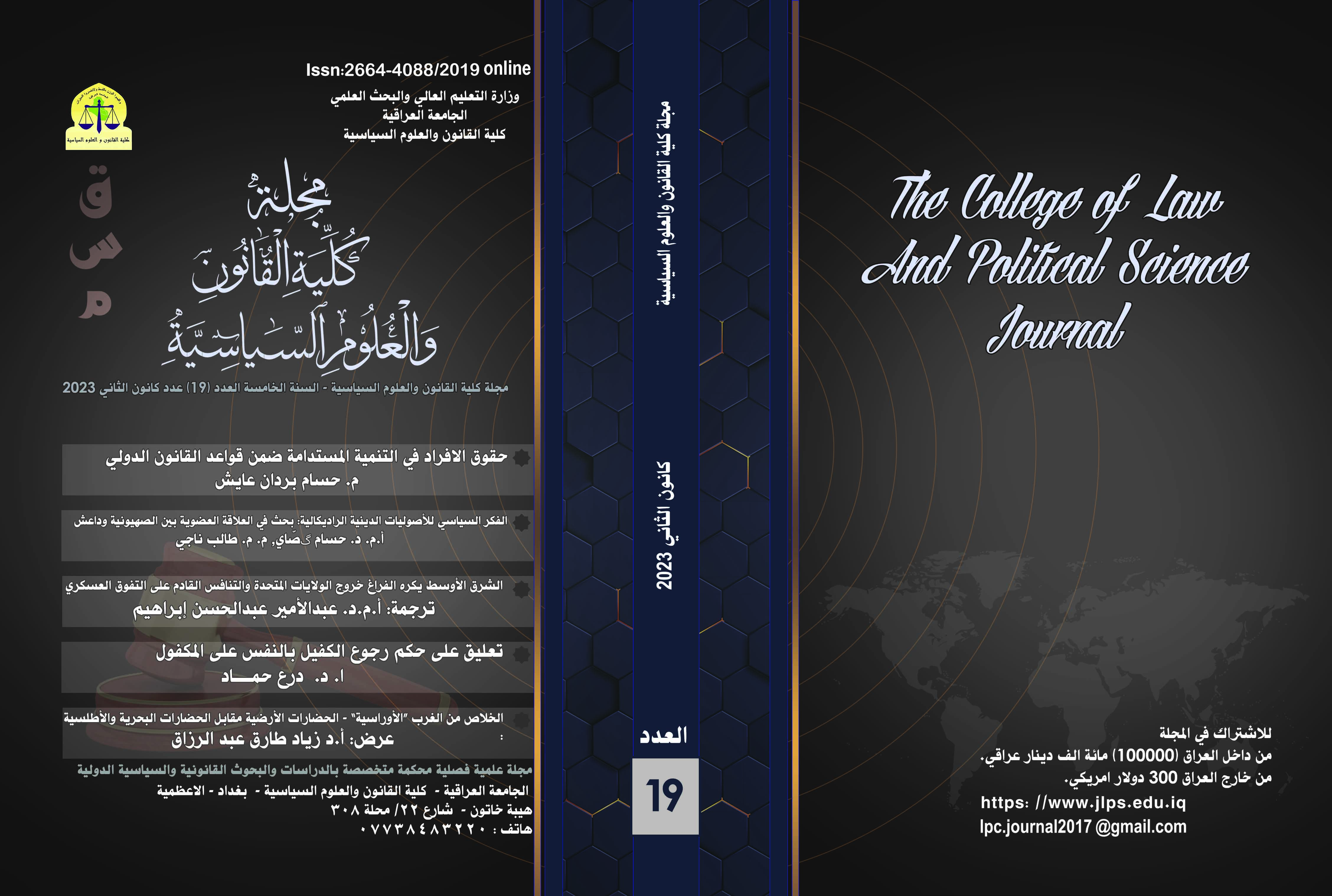أثر تدابير العفو على المسؤولية الجنائية الفردية في اطار القانون الدولي الجنائي
DOI:
https://doi.org/10.61279/0mnksv66الكلمات المفتاحية:
تدابير العفو ، العفو العام او الشامل ، العفو الخاص ، المحكمة الجنائية الدولية، النزاعات المسلحة ، المسؤولية الجنائية الفرديةالملخص
يعد العفو بنوعيه العام والخاص تنازلاً من الهيئة الاجتماعية عن كل أو بعض حقوقهما المترتبة على الجريمة ويعد العفو العام عملية قانونية مفاجئة ذات تأثير جذري يصدر بقانون عن طريق السلطة التشريعية لإزالة الصفة الجرمية عن فعل هو في حد ذاته جريمة معاقب عليها فيصبح كأنه لم يجرم أصلاً فيصبح تنازلاً يمحو الجريمة ويزيل أثرها الجنائي. ويهدف العفو الى تجريد الافعال من طابعها الاجرامي ومحو كل عقوبة صدرت بصددها
وغالباً ما ترتبط قوانين العفو العام بالمصالحة الوطنية التي تلجأ إليها الدول وتهدف إلى وضع حد نهائي لأية متابعة قضائية عن الجرائم التي تشملها ويترتب على قوانين العفو العام حظر الملاحقة الجنائية وفي بعض الأحيان الملاحقة المدنية ضد أشخاص معينين أو فئات معينة من الأشخاص، فيما يتعلق بسلوك إجرامي محدد ارتكب قبل اعتماد قرار العفو وإبطال أي مسؤولية قانونية سبق إثباتها بأثر رجعي وغالباً ما تهدف قرارات العفو إلى تشجيع المقاتلين على الاستسلام وتسليم أسلحتهم وبناء الثقة بين الفصائل المتحاربة وتسهيل عقد اتفاقيات السلام وإطلاق سراح السجناء السياسيين وتشجيع المنفيين والمبعدين على العودة إلى ديارهم.
مع ملاحظة إن هناك نوعين من العفو هما: (العفو العام) و (العفو الخاص) وأن هناك فروقات جوهرية بينهما وأن هناك آثاراً قانونية مهمة تترتب عليهما.
وفي إطار القانون الدولي كان العفو محل اهتمام الفقهاء والمختصين لا سيما وأن بعض الصكوك الدولية نصت على تشجيع تدابير العفو كوسيلة لدعم البناء وتظافر الجهود لتجاوز الآثار المدمرة للحروب كما أن اللجنة الدولية للصليب الأحمر كانت تميل إلى تضييق نطاق العفو وعدم شموله وانطباقه على الأشخاص الذين يرتكبون انتهاكات جسيمة للقانون الدولي الإنساني.
التنزيلات
منشور
إصدار
القسم
الفئات
الرخصة
الحقوق الفكرية (c) 2023 مجلة كلية القانون والعلوم السياسية

هذا العمل مرخص بموجب Creative Commons Attribution-NonCommercial-NoDerivatives 4.0 International License.





